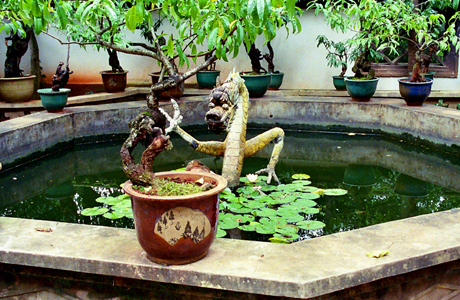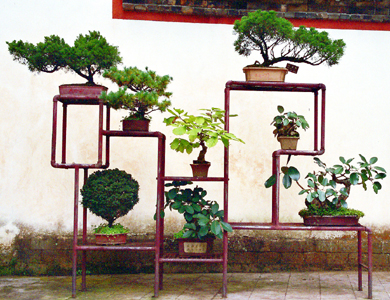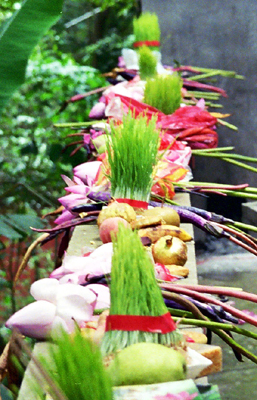TONGHAI
(Versión Español)

Para llegar a Tonghai desde Kunming, se necesitan menos de tres horas en autobús, es todo carretera y hay poco para distraer la vista. Tonghai es una pequeña ciudad agrícola, a pocos kilómetros del lago de Qilu, al lado del cual todavía hay un pueblo de descendientes de soldados del ejercito de los Mongolos. La ciudad, presa de una campaña de embelesamiento, como tantas otras en China, no es nada del otro mundo. Desafortunadamente, muchos edificios antiguos de la dinastía Qing ya han sido demolidos, mientras que otros están sujetos a reformas de dudoso gusto. Más que nada, el encanto de Tonghai reside en la mezcla interesante de su población y, sobre todo, el atmosférico parque de Xiushan.
Xiushan es un parque bastante grande, lleno de templos en el estilo de las famosas montañas sagradas chinas, situado en el monte Xiushan, con vistas sobre la ciudad y el lago Qilu. La falta absoluta de teleféricos, puestos de souvenirs y turistas, fácilmente convierten este parque en uno de los más agradables y relajantes de China….. Leer mas:
HolaChina: Your Gateway to China

TONGHAI
(English Version)
The journey from Kunming to Tonghai takes less than three hours, a straight bus-ride down the motorway with very little in the way of visual distractions. Tonghai itself is a small agricultural town, a few kilometres from the Qilu lake, on whose shores a village inhabited by descendants of soldiers from the Mongol armies survives to this day. The town, which is currently undergoing a beautification campaign, like so many others in China, is nothing to write home about. Unfortunately, many interesting old buildings, mostly dating from the Qing dynasty, have already fallen prey to the sledge hammer, while others are undergoing dubious reforms. However, Tonghai‘s saving grace is its interesting population mix and, most of all, the wonderfully atmospheric Xiushan park.

Xiushan park is a large temple park in the style of China’s famous Holy Mountains, set on Xiushan mountain, overlooking Tonghai city and Qilu lake. Its total lack of cable cars, souvenir stalls and tourists make this park easily one of the most pleasant and laid- back in China…. For more go to:


